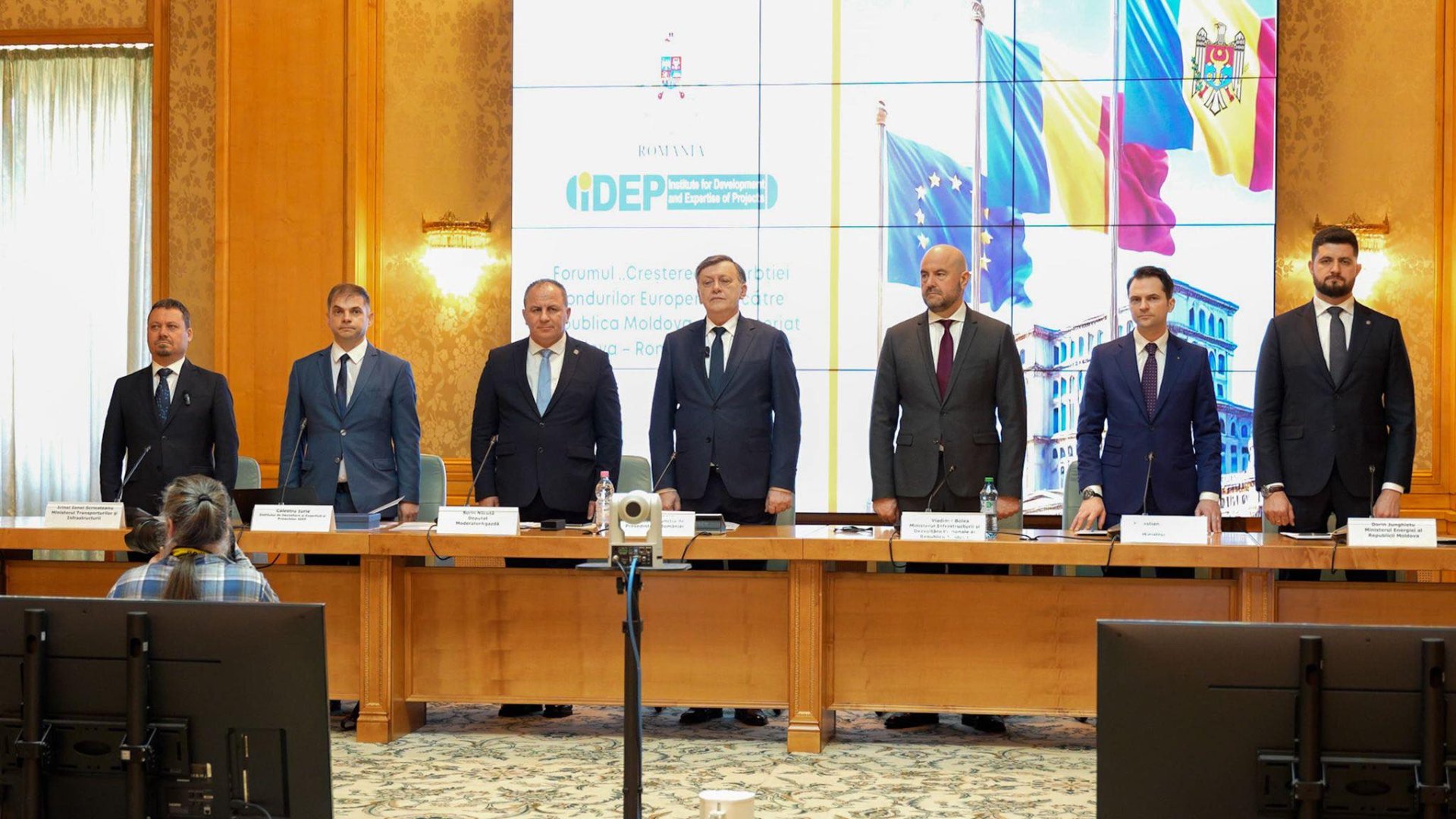
Romanian Energy Minister says zero priority for Romania and Moldova Suceava–Balti, Smârdan–Gutinas–Straseni interconnections
From an energy perspective, the top priority for Romania and Moldova is the Suceava–Balti and Smârdan–Gutinas–Straseni interconnections. These projects are crucial for Moldova, in order to rely on Romania in critical moments and to take concrete steps towards the European energy market. This statement was made by Romania's Minister of Energy Sebastian Burduja has made statements to this effect.
The Romanian official noted that the development of European-funded projects that ‘’can fundamentally improve’’ the lives of Moldovan citizens had been discussed at the Romanian Palace of Parliament on 20 March. Representatives from the Moldovan and Romanian authorities, as well as the coalition's candidate for the Romanian Presidency, Crin Antonescu, participated in the event.
‘’Romania knows how complicated this path to European integration is for Moldova is, and namely therefore, we've reaffirmed that we firmly stand by them. We have the expertise and people who have gone through all the stages of attracting European funds and who can be there step by step with our Moldovan colleagues. It's not just about money, but about how we build stronger institutions, more prosperous communities and a more efficient administration,’’ Burduja said.
The Romanian energy minister also said that, in recent months, Romania had played a decisive role in ensuring the stability and security of Moldova's energy system.
‘’The lights are on in Chisinau also thanks to Romania and our Moldovan brothers will continue to count on us. The 'Bridge of Flowers' from the early '90s is now doubled by an energy bridge that keeps us closer, united by common, pragmatic objectives, as well as century-old ideals,’’ the Romanian official noted.
In this context, the Romanian energy minister reminded the efforts made by Bucharest authorities to correct ‘’a harsh injustice for Eastern Europe.’’
‘’Although there is talk of a single energy market in the European Union, the reality is quite different. Romania, Greece, Bulgaria—and implicitly Moldova—continue to pay three to four times higher prices on the spot market than in the West on most days. Why? Because there are not enough interconnections. If we truly had an integrated market, we would all pay reasonable and comparable prices. And that's where we need to get as quickly as possible. Signals from the European Commission give us hope that these issues have finally been fully understood in Brussels,’’ the minister said.
Moldova's Minister of Energy Dorin Junghietu emphasized the vital role of interconnecting regional energy infrastructure, highlighting that energy and natural gas network interconnection projects with Romania were absolute priorities. In this respect, the official reiterated the need for timely completion of the Vulcănești-Chișinău Energy Independence Line and the acceleration of the other two interconnections, Balti-Suceava and Straseni-Gutinas, which will facilitate Moldova’s integration into the European energy market.
‘’These projects will significantly contribute to ensuring a secure supply of affordable energy for our citizens and will attract investors in Moldova's energy sector,’’ the minister also said.
Junghietu stressed that the energy field was one of the most advanced chapters in Moldova's EU accession process and Romania continued to play an essential role in this endeavor.
‘’Although Moldova does not yet benefit from EU pre-accession funds, we have access to a set of funds allocated by the European Union for crisis mitigation and enjoy favorable interest rate loans from European banks. We are confident that, thanks to the support of Romanian MEPs, we will be able to access, in the long run, EU funds dedicated to our European integration process’’ Dorin Junghietu noted.
The minister reiterated the importance of close cooperation between Moldova, Romania and Ukraine, especially in the context of support provided to Ukraine during the crisis and the reconstruction process after the war started by Russia.
The 14th edition of the forum, Boosting the Absorption of European Funds by Moldova—EU Candidate Country, took place at the Chamber of Deputies in the Romanian Parliament on 20 March. The event brought together about 200 participants, serving as an opportunity for dialogue and exchange of experience between decision-makers from Moldova and Romania. The forum contributed significantly to strengthening essential interinstitutional partnerships for Moldova's European future.
Moldelectrica, Ukrenergo signed documents on implementing cross-border capacity allocation mechanism
Moldova-EU business forum to be organized in September
BUDGET PLUS// 579 projects worth 2.6 billion lei submitted for Europe is Near Program
Moldova Digital Summit 2025 to be held on 5-7 June
PHOTO // Wines with Protected Geographical Indication celebrated at Spring Wine Vernissage
MDED: Economic integration into European single market discussed with business representatives
Moldovan official journal roundup for today
VIDEO // Advantages of integration into European financial market explained by BNM
AgroFin 2025: Farmers in Northern Moldova informed about funding opportunities for agricultural businesses
Labor minister: Authorities implement highest cybersecurity standards on personal data
Moldova wins title of Balkan judo champion in mixed team event
VIDEO // Six associations to get grants for supporting active aging projects
PHOTO // Speaker in Florești
Azerbaijan's Independence Day marked by official event in Chisinau
IGP received batch of IT equipment from DCAF and Swedish Embassy
VIDEO // Vulcanesti-Chisinau line to have 503 metal pillars weighing over 10,000 tons - equivalent to Eiffel Tower
Ion Munteanu sworn in as judge at Supreme Court of Justice
Moldovan government earmarks 1.27 million lei for construction of temporary roof and technical expertise of attic in Durlești residential block
Moldovan Wine promoted in Tokyo
Swedish MPs visited Ungheni for better cooperation and understanding of local development priorities
PHOTO GALLERY // Partnership that saves lives: Moldova and Japan - together for stronger health system
Mother and Child Institute received modern equipment thanks to Japan's support
Head of State met with JICA President
Moldovan Prime Minister: We want to take our cooperation with Japan to new level
Moldovans in Belgium invited to participate in discussion with President


